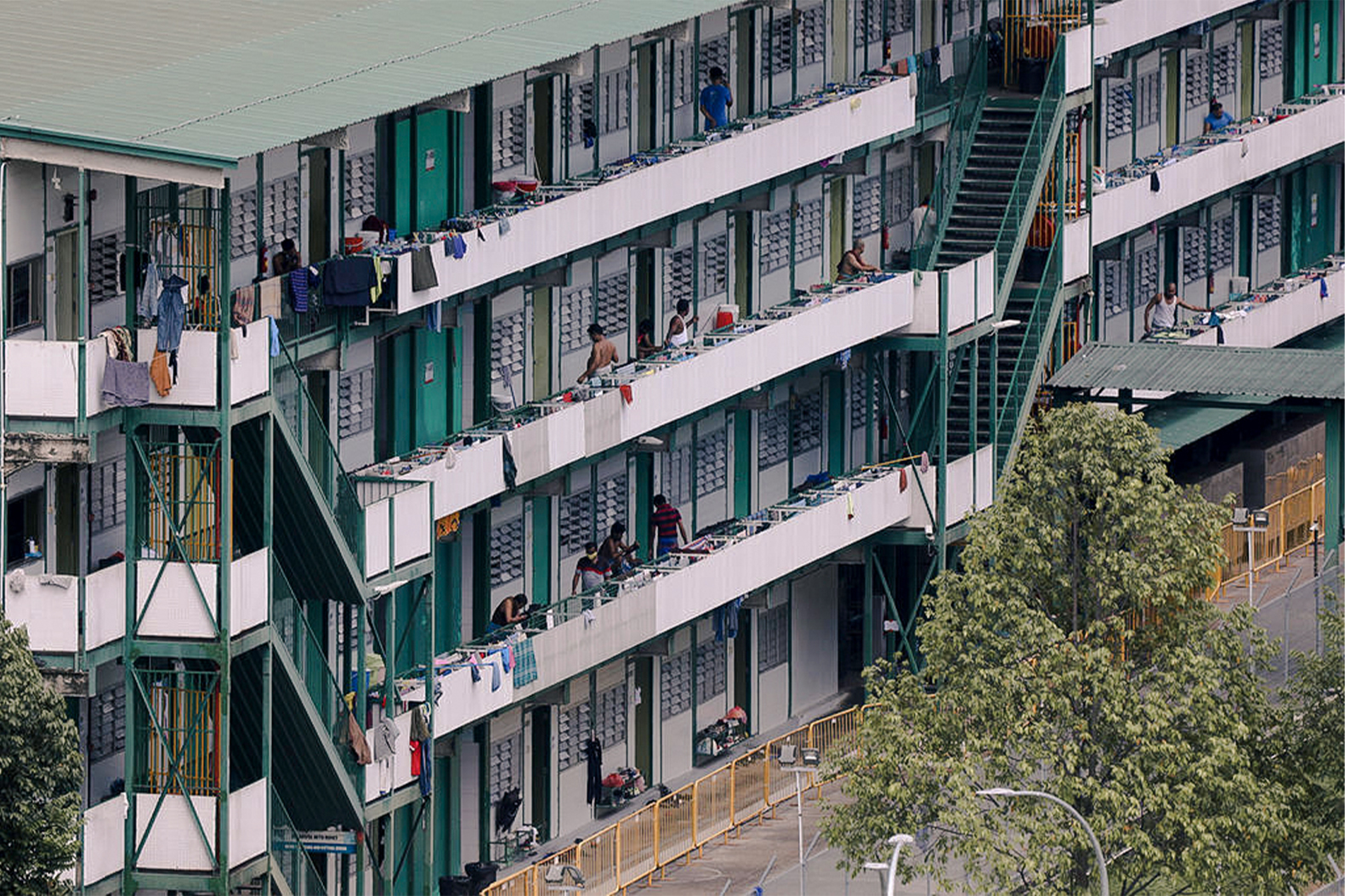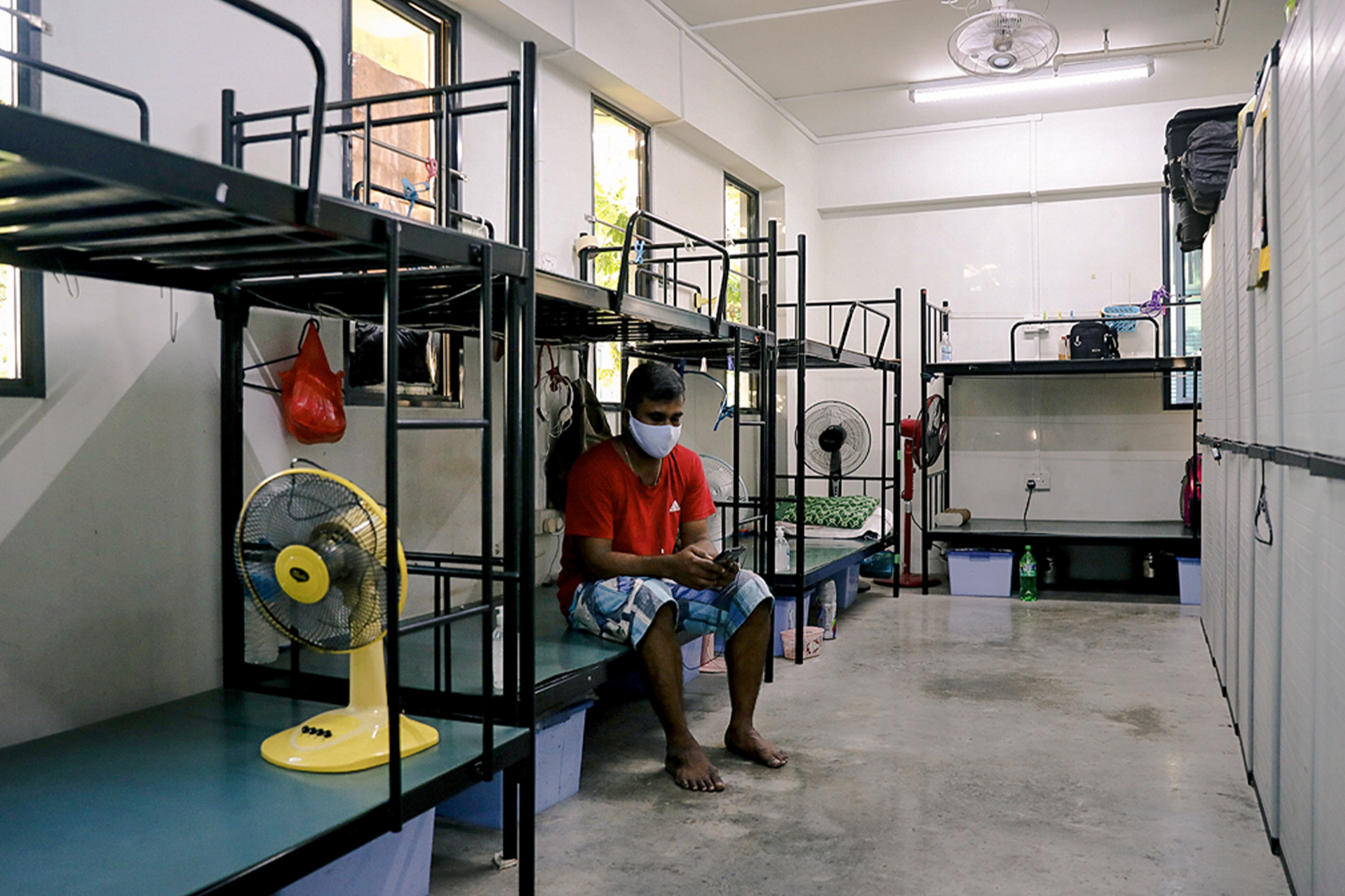We’ve all heard about the growing cases in foreign worker dormitories since the first cluster was announced.
Their suffering in this period has made me realised that I’ve long been indifferent to the plight of our migrant workers. While I’ve donated to help them before, it was never an intentional decision motivated by love, but more of a “Why not?”
But my selfish mindset began to shift when I got the privilege to interview Isabella*.
Isabella’s family runs a business that operates foreign worker dormitories in Singapore. They take care of five dormitories which house about 5000 workers.
She gave me a refreshing, behind-the-scenes look on what life is really like for a migrant worker in Singapore.

Currently, migrant workers are facing the anxiety that they might be next in line to contract COVID-19. Being in a foreign country away from their loved ones makes that prospect even more troubling.
Isabella shared: “With the circuit breaker in place, the migrant workers dormitories now operate at 100% capacity. There used to be both morning and night shifts. But now, all the workers are taking refuge in the dormitory.
“As dormitory operators, you can be assured that we are doing all that we can to support the workers. However, you must know that we do face constraints such as the lack of manpower as some are afraid to work in the dormitory in this time.
“We have to make do with what we have and work doubly hard per person.”
Isabella also shared that the migrant workers used to cook their own meals in the kitchen, but it has now been closed because of social distancing measures.
“Though we cater their meals now, it hasn’t been easy,” she said. “It takes great experience to prepare such large amounts of food for our Bangladeshi and Indian workers. It’s definitely hard to ensure that every packet has the same consistency.”
“Sometimes the food does not taste as good as normal, not because the caterer can’t cook, but maybe because they’ve never face so many orders!
“And it’s not easy to ensure that they get sufficient nutrition to boost their immune system.”

Isabella continued: “You know how we deliver food or bubble tea to the homes of our friends to bless them?”
She explained that food donations to our migrant worker friends are something similar, a “form of care packages received from Singaporeans”.
Hearing this made me wonder: What if we were just as excited to bless these migrant workers in the same way we’re blessing our friends in the circuit breaker?
It’s one thing for migrant workers to feel cared for by their dormitory operator. It’s another thing to receive love from Singaporeans in a difficult time.
I believe God would be pleased as we would truly be treating the foreigner as we would ourselves or loved ones.
Before, I didn’t think my donations mattered that much. But the truth is, donations mean a lot to the migrant workers personally.
Isabella revealed that while most people were keen to contribute to support the foreign workers, some would still ask: “Don’t you all have money? Why is there a need for donation drives?”
“We have been tapping on our reserves to do the best that we can for them,” explained Isabella. “But it’s different when Singaporeans contribute!
“It’s one thing for the migrant workers to feel cared for by their dormitory operator. But it’s another thing for them to receive love from Singaporeans in a difficult time like this.”
Isabella shared how heartened she was by the tremendous response to their Dettol and food donation drives from friends and family.
The food donation drive was a back-up plan to ensure there would be enough food for the brothers in Ramadan, as the catered food has to arrive before 4am and there’s some risk that caterers might get the orders wrong.
Thankfully, generous giving has blessed the dormitory with many cartons of food. Isabella said: “They’re not giving their leftovers. They’re asking what the migrant workers like and purchasing such items accordingly”.
Because of this generosity, Isabella and her family can now give these donated items out as care packages to migrant workers as a form of blessing.

As the number of cases and clusters continue to climb among the migrant workers communities, it’s not uncommon to hear questions like: “Why aren’t the dormitory operators doing anything?”
From my time with Isabella, I’ve learnt that at least one family is doing their best to care for the migrant workers in this difficult time.
I was shocked to hear how little sleep her sister gets. On just a few hours of sleep, Isabella’s sister goes down to the dormitory daily as her presence brings assurance to the migrant workers who feel fearful.
When a migrant worker calls to inform her that he has a fever, she has to drop everything – even if it’s at 1am – to call an ambulance and take care of the situation.
So if you know a dormitory operator, organisation or person striving to serve our migrant workers, help and encourage them as best as you can because it’s not easy.
As I learned how Isabella and her family are fighting for the migrant workers, it began to melt my numbness to the numbers.
I realised that behind every statistic and number is a life precious in the eyes of our God.
When I finally saw our migrant workers as people who, just like me, have families and are wired to feel fearful in such a situation, my heart broke.
How could I feel that their problems were far removed from me, when they happened in my homeland?
So, when COVID-19 blows over, my prayer is that we will not return to the status quo. I’m praying that more and more of us will come to see our migrant workers as God does.
They are our brothers and sisters.
Name has been changed for confidentiality.
- What are your thoughts on the migrant worker clusters?
- What does the Bible say on how we should treat foreigners?
- What is one practical way you can help migrant workers in this period and beyond?









